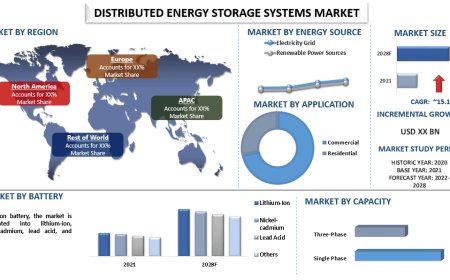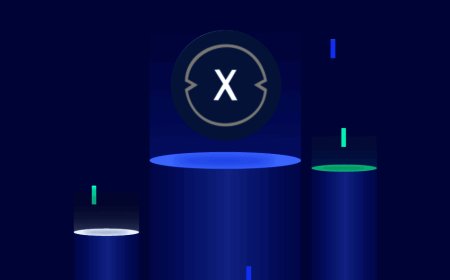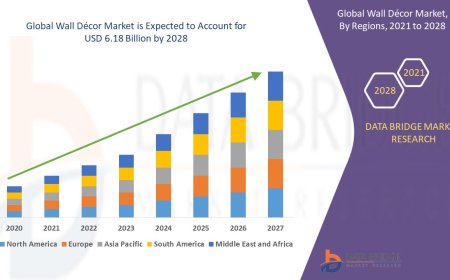Best Crypto Wallet in 2025? Comparing MetaMask and Trust Wallet
MetaMask and Trust Wallet have earned their place as top-tier wallets in the crypto world. Each offers powerful tools for different kinds of users.

1. Introduction: Why Crypto Wallets Matter
In the ever-evolving world of cryptocurrencies, choosing the right wallet is a crucial step in ensuring security, flexibility, and seamless access to blockchain applications. Among the top contenders in the non-custodial wallet space are MetaMask and Trust Wallet. Both are widely used by millions of users to store, manage, and trade digital assets. Their popularity stems from their ease of use, support for DeFi (Decentralized Finance), crypto staking, and access to dApps (decentralized applications). But which one stands out as the better choice in 2025? In this blog, well compare metamask vs trust wallet across multiple key features to help you decide.
2. Blockchain Compatibility: How Many Chains Can You Access?
MetaMask was initially created solely for the Ethereum network but has since expanded to support other Ethereum Virtual Machine (EVM)-compatible networks like Binance Smart Chain (BSC) and Polygon. However, users need to manually configure these networks, which can be a hassle for beginners.
Trust Wallet, on the other hand, supports a wide array of blockchains right out of the box, including Ethereum, Solana, Binance Chain, and other Layer-1 protocols. This makes Trust Wallet a better option for users looking for multi-chain support without needing manual network configuration.
3. Token Swapping Capabilities
Both wallets offer built-in token swap features. MetaMask allows swapping mainly for Ethereum-based tokens and performs these swaps directly in the app. However, its scope remains somewhat limited to the Ethereum ecosystem.
Trust Wallet provides a more versatile swapping experience by supporting token swaps on networks like Binance Smart Chain, making it more flexible for users who transact across various ecosystems.
4. NFT Handling: Which Wallet is More NFT-Friendly?
NFT (Non-Fungible Token) support is another important feature for crypto users. MetaMask allows users to store and view NFTs, but its interface is best suited for Ethereum-based collectibles and is not as intuitive for managing NFTs on other chains.
Trust Wallet, however, excels in offering a comprehensive NFT management experience. It supports a broader range of blockchains and presents a more user-friendly interface, especially for mobile users. If collecting NFTs from various networks is your goal, Trust Wallet might be the better pick.
5. dApp Browsing Experience
MetaMask is highly favored for interacting with Web3 apps on desktop thanks to its browser extension. It also provides a mobile dApp browser, although the desktop experience tends to be more reliable and smoother.
Trust Wallet matches MetaMask by providing both a mobile dApp browser and a desktop browser extension. For mobile-first users, Trust Wallet delivers a robust dApp experience, while desktop users may still lean toward MetaMask for more seamless Web3 integration.
6. Staking Features and Passive Income
Earning rewards through staking has become a popular feature in crypto wallets. Trust Wallet shines in this area by allowing users to stake a variety of coins, including BNB, Tezos (XTZ), and more, all within the app. This makes passive income generation easy and convenient.
MetaMask also supports staking but focuses mainly on Ethereum-related options such as liquid and validator staking. While its powerful for Ethereum holders, Trust Wallet offers more variety and ease for those staking across multiple blockchains.
7. Security Features: Who Keeps Your Assets Safer?
Both MetaMask and Trust Wallet are non-custodial wallets, meaning users retain full control of their private keys. They are also open-source, allowing community developers to audit their code for vulnerabilities.
In terms of security risks, both wallets face similar challenges. User behavior is the biggest risk factorphishing scams and weak security practices can compromise either wallet. Therefore, maintaining personal security hygiene is essential regardless of which wallet you choose.
8. User Experience and Interface Design
MetaMask is known for its clean design and ease of use. However, adding non-Ethereum networks requires manual steps that may be daunting for new users. Thankfully, there are plenty of tutorials and community guides available to assist.
Trust Wallet offers a simpler onboarding process, especially for users who want instant access to multi-chain functionality without complicated setups. For beginners or mobile-first users, Trust Wallet may offer a smoother experience.
9. Transaction Costs: Is One Wallet Cheaper?
Both MetaMask and Trust Wallet calculate transaction or network fees based on blockchain traffic. Additionally, each wallet applies a nominal fee when users perform token swaps within the app. Theres no significant difference in cost between the two, as the fees depend more on the underlying blockchain network rather than the wallet provider.
10. Which Wallet Is Right for You?
Choosing the best wallet ultimately depends on your specific needs and preferences.
Go for MetaMask if:
-
You are deeply involved in Ethereums DeFi ecosystem.
-
You regularly use Web3 applications from your desktop.
-
You prefer a browser-based wallet with solid desktop integration.
Choose Trust Wallet if: -
You want a simple mobile wallet that supports various blockchains.
-
You manage NFTs across multiple networks.
-
Youre interested in staking and earning passive income directly through the app.
Both wallets are excellent and secure choices, each catering to different types of usersMetaMask for desktop-based Ethereum users and Trust Wallet for mobile users who need flexibility.
11. The Next Step: BlockDAG Beyond Wallets
While choosing between Trust Wallet and MetaMask is important, theres more going on in the blockchain world. A new innovation called BlockDAG is quickly gaining momentum and offers a glimpse into the future of decentralized systems.
BlockDAG combines blockchain technology with a Directed Acyclic Graph (DAG) structure, allowing for faster transactions and better scalability. Its hybrid model is attracting massive investor attention. With over $216 million raised in presales, its clear that the project has significant backing and belief in its vision.
Currently in Batch 27 with a token price of $0.0248, BlockDAG has sold over 19.3 billion tokens, proving its growing popularity. For those interested in mining, BlockDAG offers user-friendly tools including a mining calculator and two types of mining devices: the X10, which can mine up to 200 BDAG daily, and the powerful X100, capable of mining up to 2,000 BDAG per day.
More than 15,850 mining units have already been sold, showing growing community adoption. Additionally, BlockDAGs Ambassador Program invites individuals to promote the project, host events, and educate others, enhancing its global presence.
Strategic partnerships with major companies further strengthen its credibility, making BlockDAG one of the most promising projects in the crypto space today.
12. Conclusion: Two Great Wallets, One Big Future
MetaMask and Trust Wallet have earned their place as top-tier wallets in the crypto world. Each offers powerful tools for different kinds of users. MetaMask excels for Ethereum enthusiasts on desktop, while Trust Wallet provides a versatile, mobile-friendly experience across multiple chains.
But as we look ahead, technologies like BlockDAG are redefining whats possible in blockchain. With its innovative architecture, investor backing, mining options, and growing community, BlockDAG represents the next big evolution in decentralized technology. Whether you're storing tokens in a wallet or exploring emerging blockchain platforms, the future of crypto has never looked more exciting.









































